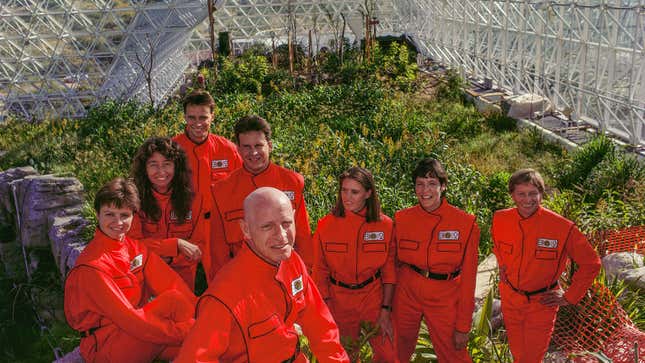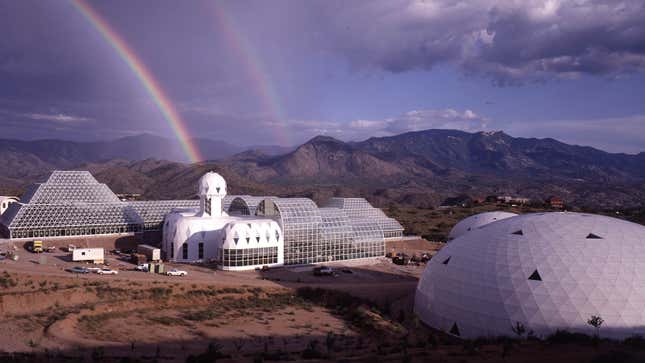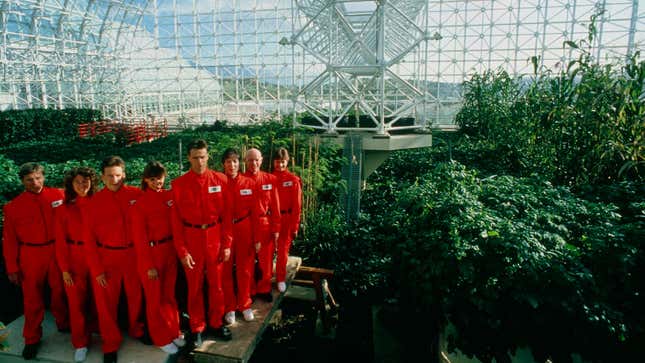

In 1991, a group of eight experts of varied disciplines headed into a self-contained structure spanning just over three acres in Oracle, Arizona, with the plan to stay there without leaving for two years. Inside the large glass polygon called Biosphere 2 were multiple biomes: a desert, rainforest, and ocean with a coral reef. The experiment was an offshoot of an idealistic commune of performers and environmentalists and bankrolled by philanthropist Ed Bass (a billionaire, according to Forbes). The idea was to see whether life could sustain in a closed environment. It was thought that the experiment’s implications could help humanity understand what it would be like to colonize another planet.
Biosphere 2 was a media sensation, its inhabitants’ mission covered like that of astronauts. Its story only became more sensational when the experiment’s parameters were violated—one “biospherian” who had to exit for emergency surgery brought back in duffel bags that contained new materials. Then news leaked that oxygen had been pumped into the structure, quashing the notion that Biosphere 2 was entirely self-sufficient. A flurry of critical coverage ensued and the experiment was deemed a failure.
And yet, many who entered the environment remain steadfast in their belief of the importance of their experiment. They have contributed interviews to director Matt Wolf’s Spaceship Earth, which traces the experiment through its commune roots (led by charismatic leader John Allen) to its aftermath, which involves a rather reviled figure who was briefly a staple of recent politics. (Wolf requested that I refrain from spoiling the third-act reveal of that figure’s identity.) I spoke with Wolf about his archival-footage-filled movie, the experiment’s lasting relevance, and the bizarre coincidence of releasing a movie about a group that effectively self-quarantined during a time when much of the world has orders to do so. An edited and condensed transcript of our phone discussion from earlier this week is below.
JEZEBEL: What are your thoughts about releasing a movie during a pandemic that continues to command the lion’s share of the public’s attention?
MATT WOLF: At first, I was like, “Is it going to be gauche to promote a movie as people are experiencing real tragedy?” As this has persisted and people are settling into a kind of new normal, I feel okay about it. In fact, I feel like it could be useful, not only as a form of entertainment. I feel like the ideas in it might provide some ideas about isolation or, more significantly, some sort of form of transformation that might happen through the experience and how that might change people’s relationships to the larger world.
This movie hews so closely to our societal lockdown that its release feels like kismet.
-

-

-

-

-

-

-

-

-

-

-

-

-

-

-

-

-

-

-

-

-

-

-

-

-

-

-

-

-

-

-

-

-

-

-

-

-

-

-

-










































